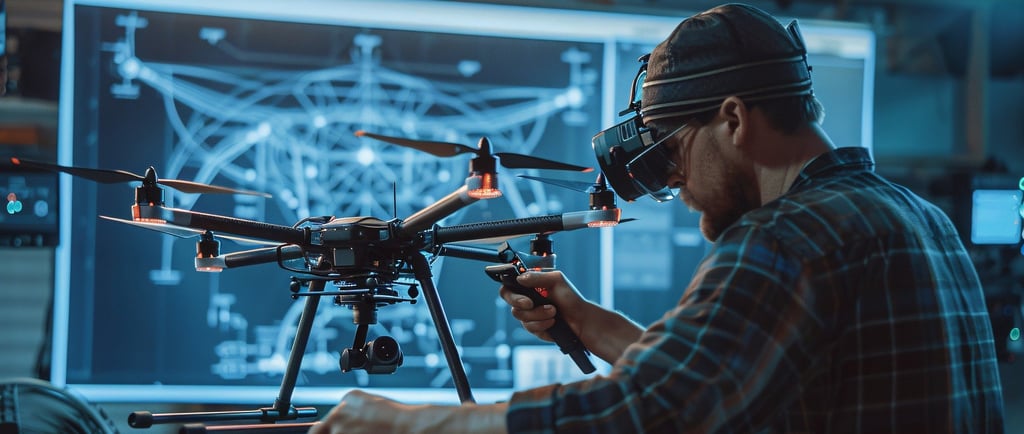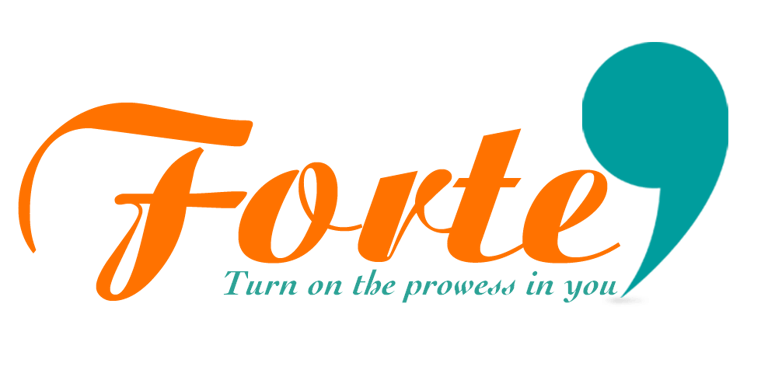The Gap Between Classroom Learning and Industry Demands Filled by Forte9's Engineering Projects
This world is running fast and faster, and bridging the gap between academic knowledge and its real-time application has emerged as a significant challenge for........
ARTICLE
1/16/20254 min read


The Gap Between Classroom Learning and Industry Demands Filled by Forte9's Engineering Projects
This world is running fast and faster, and bridging the gap between academic knowledge and its real-time application has emerged as a significant challenge for engineering students. In this regard, educational institutions must find innovative ways of equipping students with practical skills in step with industry demands. Forte9 as a leading institution has been able to overcome this challenge as the institution has been integrating project-based learning in its curriculum. Not only have the students acquired their much-needed technical skills, but also equipped them to respond to the dynamic, fast-evolving demands that characterise the industry.
Transition of Traditional Learning and Project-Based Learning
Traditionally, engineering education focuses more on theoretical knowledge; students have learned concepts, formulas, and principles in a classroom. Although the basic knowledge is fundamental, students usually graduate ill-prepared to handle the practical situations they will be facing in the real world. At Forte9, PBL is placed on transforming this theoretical knowledge into practical experience through actual project work.
The students work on real-world engineering projects that are like industry-level challenges. This allows them to apply academic knowledge in practical settings, thereby encouraging problem-solving, innovation, and creativity. Working on projects helps students understand how their technical expertise can solve real-world problems, thus making them more competitive in the job market.
How Forte9's Project-Based Learning Approach Works
The project-based learning approach is integrated into every phase of the curriculum at Forte9. Early on, students learn by engaging in projects that let them put engineering principles into practice. These projects typically range from designing prototypes and engineering solutions to real-world problems to actually working with industry partners on live projects.
Starting with Fundamentals: Students start with smaller, foundational projects that focus on core engineering concepts such as circuit design, mechanical systems, and basic programming. These early projects ensure that students grasp the basics before moving on to more complex tasks.
Real-World Challenges: As students progress in their studies, they are given larger, more complex projects that simulate real-world industry problems. They may design IoT devices, create automation systems, or develop robotics solutions. These projects hone their technical skills but also challenge them to think critically and come up with innovative solutions.
Industry Collaboration: The approach taken by Forte9 is very much industry collaboration-oriented. Students get to work on live projects with professionals, hence getting direct exposure to the challenges of companies in real life. The interaction helps the students understand what the industry wants and equips them with the necessary skills to fulfill those demands.
Developing Key Industry-Ready Skills
Forte9 focuses on the development of several essential skills valued by employers in the engineering sector. The outcomes enhance the employability of graduates and ensure that they are ready to contribute meaningfully from day one in their future workplaces.
Engineering revolves around devising solutions for intricate challenges. By engaging in projects that demand innovative thinking, students cultivate essential analytical skills. They learn to assess complex issues, pinpoint feasible approaches, and execute solutions with precision. This hands-on experience equips them to navigate and resolve the diverse problems they will encounter in their professional journeys effectively.
Collaboration and Teamwork: Many of the projects undertaken at Forte9 require students to work in teams to simulate many of the collaborative environments they will encounter in the workplace. This then teaches them how to communicate, share responsibilities, and collectively manage projects, all of which are essential skills in a professional environment.
Innovation and Creativity: The nature of engineering projects at Forte9 encourages students to think outside the box, involving them in the creation of novel solutions, and promoting innovation and creativity - great qualities that industries such as robotics, IoT, and automation look for.
Time and Resource Management: Engineering projects are not usually executed linearly. The students learn how to manage their time appropriately, balance several tasks, and accommodate limitations, including budgeting and resource constraints, in designing their projects. This reflects the challenges students are expected to face in real-life engineering projects, preparing them for the more practical side of future careers.
Technical Competence: Of course, the core technical skillsâÂÂprogramming, circuit design, and systems integration are at the heart of the projects in Forte9. Students develop technical competencies but also work with the tools, software, and technologies used in the engineering industry.
Preparation of Students for Future Engineering Roles
It focuses on providing ultimate exposure to prepare the students and enable them for a successful engineering career. Since the projects cover real-life engineering problems, students at Forte9 will easily adapt to such complexity that now forms a norm in engineering workplaces.
Students graduating from this project-oriented curriculum go technically savvy, thus being able to adapt to such a rapidly changing technology landscape. They are prepared and ready for roles in engineering-related fields: robotics, automation, IoT, renewable energy, whose talents are on every employer's top wish list.
The impact of Forte9's approach is reflected in the success stories of its alumni, who have gone on to secure positions at leading technology companies, start their own ventures, or contribute to groundbreaking projects in various sectors. These alumni often attribute their success to the hands-on experience they gained through Forte9's project-based learning, which gave them a competitive edge in the job market.
Industry Validation and Recognition
Forte9's efforts to narrow the gap between academic theory and the demands of business have won the institute industry acclaim. Practical, project-based education makes it a reliable partner for companies seeking engineers who can make an instantaneous impact.
Through partnerships with industry partners, Forte9 ensures that its students are exposed to the latest technologies and practices, giving them an up-to-date skill set that aligns with current industry standards. The ability to work on live projects not only builds students' confidence but also demonstrates to employers that they are capable of handling the challenges of the modern engineering world.
Conclusion
In a world where technological aspects are evolving at a speed no one ever could have imagined, the typical engineering education system, focused solely on theory, cannot really prepare students for the domain. Forte9 has bridged this gap of learning by integrating project-based learning to its curriculum and facilitating classroom learning with real-world engineering challenges.
Through hands-on projects, collaboration with industry professionals, and a focus on developing critical skills, Forte9 prepares its students with not only the technical knowledge needed but also with practical experience required to thrive in their future careers. As the industries evolve further, the requirement for engineers to think creatively, work collaboratively, and solve complex problems will only increase. By developing these skills, Forte9 is getting its students ready to be tomorrow's innovators and leaders.
